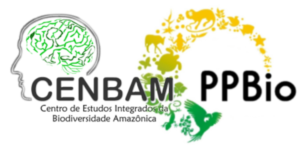Languages
About Us
About PPBioPPBio - A video by Don McConnell. of |
||
|
Herbariums, museums and living collections. |
Biological collections are one of the most important tools for obtaining information on the composition, distribution and content of biodiversity in a given environment. |
|
|
using RAPELD |
The inventory's main objective is to organize, then make available, information from biological surveys in the Amazon. | The surveys in question all use RAPELD, a standardized methodology described here. The PPBio portal also provides information on other programs of long-term ecological research whose high-quality data and methodology make them comparable. |
| Thematic Projects | Growth and development of methods for the sustainable management of biodiversity and bioprospecting. | Broaden and deepen the knowledge of the biodiversity of the Amazon and the chemical potential for supporting the production of products and to improve the local population's quality of life. |
| Information about locations and the research they are engaged in. | Strengthening such Centers and training human resources in each region are among PPBio’s main goals | |
| Collection Sites | A map showing where biodiversity research is conducted. | PPBio and their partners have already installed more than 70 RAPELD grids and modules in Brazil. |
| PPBio International and modules overseas. | Did you know that PPBio also works in other parts of the world, not just Amazonia? | There are PPBio Australia and Argentina and RAPELD modules are being used in Liberia, Ecuador and the UK. |
| Identification Guides | Taxonomic identification is a key step in studies of biodiversity. | For relatively well-known groups, PPBio promotes the production of species identification guides in a colorful format with excellent quality graphics written for a mixed audience, made up of scientists, students, tourists and others. |
| Publications | PPBio aims to integrate and strengthen research activities on biodiversity in Brazil. | Here we have made available a significant number of dissertations, theses, publications in scientific journals and popular material produced by researchers and students who used the PPBio structure to conduct their research. |

